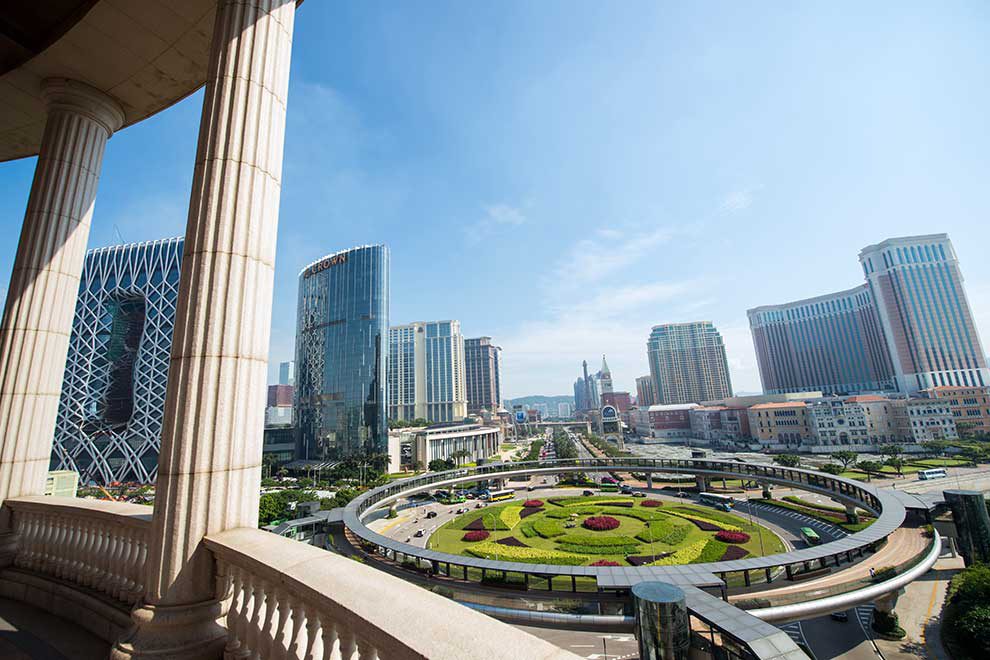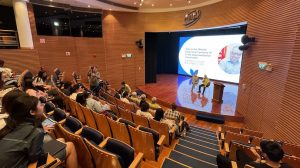Macao’s integrated resorts are well known worldwide for the huge size of their respective casino gross gaming revenues. A new study by 2 scholars from IFT concludes, however, that gaming activities play no particular role regarding the degree of attachment visitors feel toward a casino resort in the context of an integrated tourism experience.
Of all the dimensions of tourism experience studied by Dr. Yan Io Man U and Dr. Penny Wan Yim King, “positive emotions, particularly the ‘light pleasure’ emotions,” were the “most effective factors shaping visitors’ place attachment,” the 2 IFT scholars concluded.
“Hotel operators should be aware of this and should improve visitors’ place attachment by better managing their positive emotions, especially their ‘light pleasure’ emotions,” the researchers wrote. Such emotions were related to “relaxing and pleasurable” feelings.
Place attachment refers to emotional and functional bonds between place and people. Intensity of place attachment has been found to be an indicator of tourists’ loyalty and commitment to a particular place.
The conclusions – featured in the paper “Relationships between Tourism Experiences and Place Attachment in the Context of Casino Resorts” – were published last year in the Journal of Quality Assurance in Hospitality and Tourism.
“The present findings suggested that not all activities could determine tourists’ place attachment in the context of casino resorts,” Dr. Io and Dr. Wan wrote. “It is interesting to note that gaming was found to have no significant impact upon any dimension of place attachment, suggesting that casino-resort visitors’ participation in gaming did not affect their emotional bond with the place, though gaming is the core entertainment of casino resorts.”
The importance of non-gaming
The study results were based on a questionnaire answered by 500 tourists to Macao, most of them coming from Mainland China, Hong Kong or Taiwan. The sample comprised visitors to 4 major casino resorts, namely City of Dreams, The Venetian Macao, Galaxy Macau and MGM Macau. These venues were selected for the study as being “well known for their non-gaming facilities, in addition to their casinos,” the researchers stated.
The study addressed the effects of a number of so-called “integrated tourism experience dimensions” – including “positive emotions”; “gaming and non-gaming hedonic activities”; “sensory experiences”; “cognitive appraisal of tourism offerings”; and “social relations” – all of which affect one’s attachment to places such as integrated resorts. Place attachment can be described as covering place preference, positive feelings toward the place, emotional connection with the place, and satisfaction.
Dr. Io and Dr. Wan concluded that different tourism experiences had different impacts, respectively, upon each dimension of attachment to place in the context of Macao’s casino resorts. For instance, their results revealed that non-gaming activities such as dining, shopping, live shows and events were found “to predict respondents’ place [preference] significantly”.
“This finding suggested that the operators of casino resorts should continue to develop more and better non-gaming hedonic activities and facilities for visitors,” the researchers stated. “With the significant effect of positive emotions on place attachment shown in this present study, both non-gaming activities and positive emotions were important for the management of visitors’ place attachment,” they further noted.
In addition, the researchers observed that each dimension of tourism experience not only had a distinct impact upon attachment to place, but also seemingly created interactions within the minds of visitors. “To better manage the integrated tourism experiences, the interrelationships among the 5 dimensions of the integrated tourism experiences should be further explored, particularly the impact of different dimensions of tourism experiences on positive emotions,” opined Dr. Io and Dr. Wan.
The authors also noted that all dimensions of place attachment regarding casino resorts were interconnected.
“Since place dependence, place affect, social bonding, and place satisfaction were related to each other, the tourism experiences of non-gaming activities, social relations, positive emotions, and sensory experiences had some indirect effects on visitors’ place satisfaction” via “their impacts on place dependence, place affect, and social bonding,” observed Dr. Io and Dr. Wan. “Operators of casino resorts should notice the different impacts of each dimension of tourism experience on place attachment and plan resource allocation accordingly.”
More info
IFT Visiting Assistant Professor Dr. Penny Wan King Wan holds a Ph.D. from the University of Hong Kong. Her academic research fields are primarily related to sustainable tourism planning, casino gaming management, heritage management, hospitality services, and urban planning. Dr. Wan has served as an editorial board member and reviewer for several high-profile academic journals in the tourism field.
https://doi.org/10.1080/1528008X.2017.1314801









